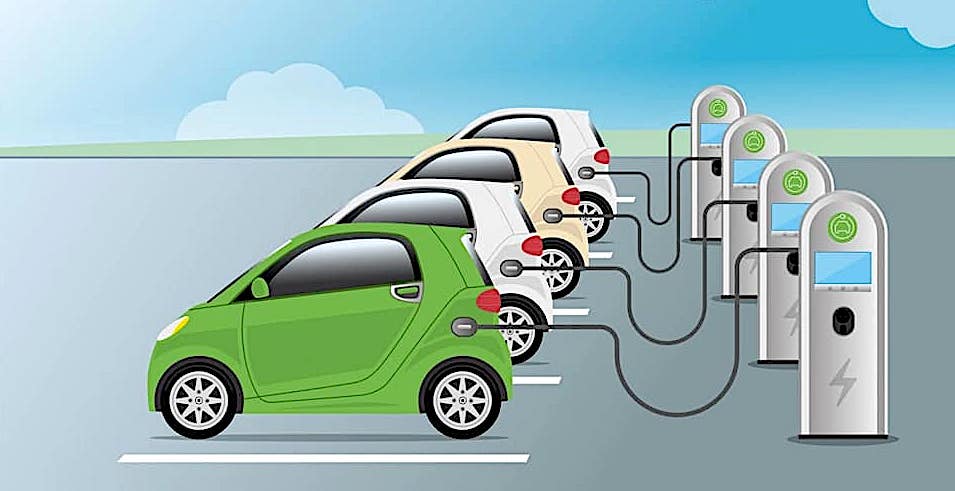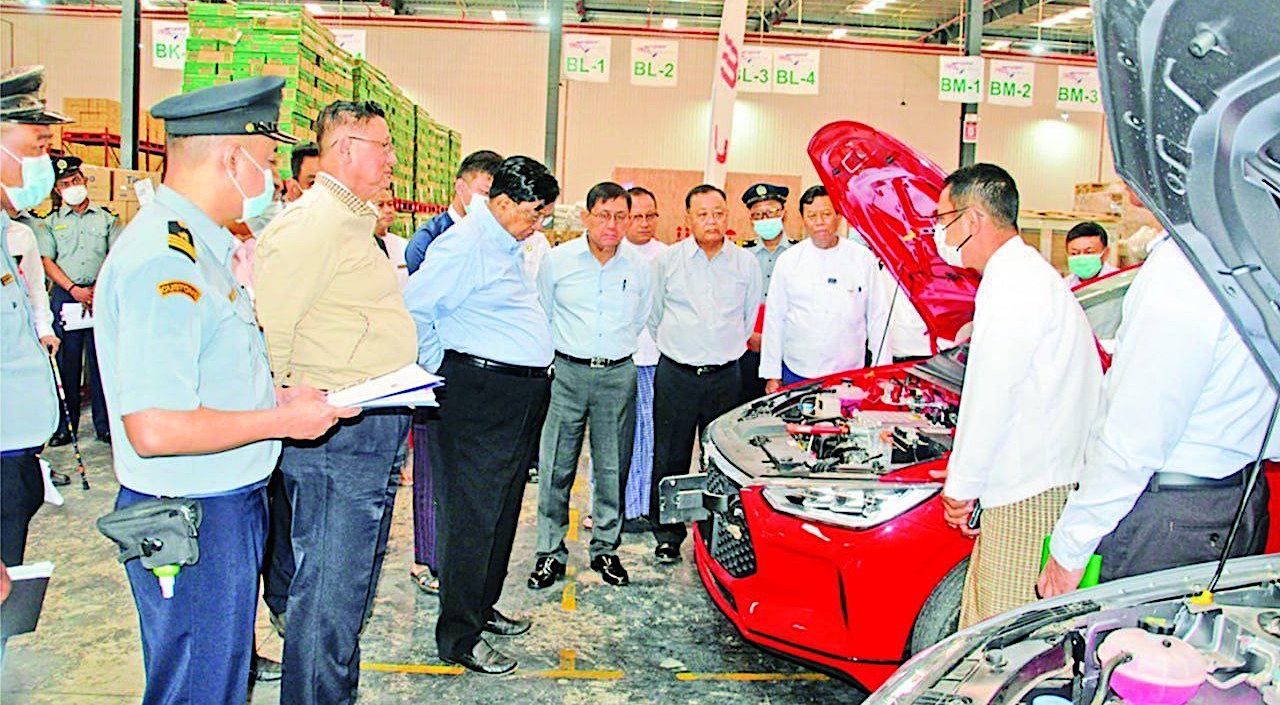Amid frequent power outages across the country since late 2021 following the coup earlier that year, Myanmar’s military regime is working to build charging stations in the administrative capital of Naypyitaw and along Yangon-Mandalay Highway.
The junta-controlled Electricity Ministry’s electric-vehicle committee has informed 38 filling stations along the highway to contact a local company called Grand Sirius if they want to run a charging station on their premises.

However, the majority of fuel suppliers have no interest in operating charging stations, according to fuel importers interviewed by The Irrawaddy.
A senior official from a local fuel company said: “It would be a hassle for filling stations as they were not designed for that service when they were built. Filling stations will make it happen because they are being held at gunpoint. But they will only do it for show.”
The plan is not practical because filling stations currently have to operate with generators for hours per day as the regime can’t supply electricity round the clock.
The regime has notified petrol stations that Grand Sirius is selling 60kW charging facilities manufactured by China’s Linkcharging Technology.
Grand Sirius signed a deal with China’s Hozon Auto in September to manufacture NETA electric vehicles (EVs) and provide services in Myanmar.
The Irrawaddy contacted Grand Sirius for details about the deal but got no response.
One auto dealer, commenting on condition of anonymity, said: “In other countries, electric vehicles are promoted to reduce fuel consumption. But here, we don’t have a regular supply of electricity even in the cold season [when hydropower dams that are Myanmar’s main source of electricity should be replenished by the rainy season]. If we would need to use more energy for those electric vehicles, then this system is meaningless.”

The commercial capital Yangon and the second city of Mandalay are still suffering rolling blackouts, while the picture in other parts of the country is even worse.
Meanwhile the regime is busy importing EVs before the infrastructure to support them has been built in Myanmar. And it won’t be able to provide the specific voltage needed for charging stations, the auto dealer added.
Electric vehicles have become popular internationally because they don’t require fuel and they emit no or little pollution.
In its bid to promote their use in Myanmar, the regime has waived import tax on electric trucks, cars, three-wheelers, motorbikes and spare parts until the end of fiscal 2022-23 in March.
The regime has issued EV import licenses to nine companies, to replace conventional-fuel taxi and public transport fleets, according to local car dealers. However, it has not released the names of those companies.
“Considering the power outages, [the regime] should have also exempted import tax on trailers, so electric vehicle owners can tow generators and charge as they drive,” a fuel supplier remarked sarcastically.
Despite the blackouts, junta chief Min Aung Hlaing likes to talk about running electric buses and subways in meetings on the economy.
Japan’s Nissan, a couple of Chinese companies and local firm Khaing Kahing Sangda currently manufacture and/or sell EVs in Myanmar.
Myanmar recently received its first batch of 40 EVs from China, junta-controlled newspapers reported on Wednesday. Chin Dwin Shan Co will run 10 electric taxi cabs based at Yangon International Airport, while NPK Motors will run 10 electric cabs at Naypyitaw’s Thabyaygon Market.
The cab companies have chosen the e2 model manufactured by Xi’an-based BYD. The two taxi firms were the first to import electric vehicles after the regime granted import licenses to 26 companies.

















